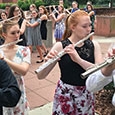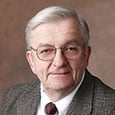The 2019 Directory of Summer Masterclasses, Camps and Festival offers information about programs for flutists of all ages and interests from the youngest students to adults. This roundtable discussion offers a look inside several youth programs. The programs’ directors offer insights for teachers who might be considering starting a program of their own or who are looking for information to advise their students.
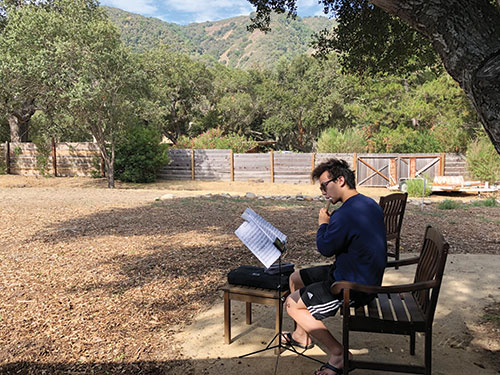
Courtesy of Northern California Flute Camp
Karen Van Dyke
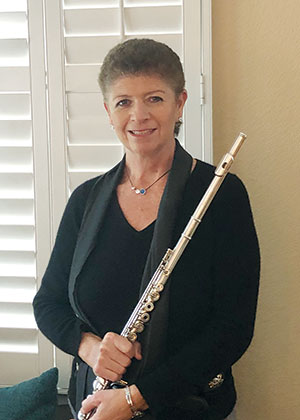
In order to maximize each student’s experience, I apply the following scheduling algorithm:
• Students will have a different teacher for the masterclass lesson and private lesson.
• Students will not have either of the above with the same teacher as the year before.
• No student will have a private or masterclass lesson with their year-round teacher.
• There will be no duplicate performances of a piece on any masterclass or recital.
• Students receive a piano rehearsal prior to their recital performance.
We have a computer program that was written exclusively for NCFC consisting of over 8,000 lines of code that figures this all out on the first day of camp. Before the program, it was a dizzying process.
Each student receives one 45-minute private lesson during the week. Other classes have included performance anxiety coaching, pedagogy, conducting, writing a cadenza, Native American flutes, flute maintenance, yoga for flutists, and composing. For many years we have offered popular swing dance classes in the morning. For pedagogy, we offer both a class in which the nuts and bolts are covered, and a separate clinic for which we bring in a local beginning student for our students to practice teaching the material. This is important, because so many high school flutists are already teaching, and few teachers spend lesson time on pedagogy.
Evening events feature recitals followed by social events including games, puzzles, socializing, stargazing, or practice. Skit Night is always popular. Recreational activities include hiking on local trails, swimming, volleyball, water balloon volleyball, and games such as Mafia and Capture the Flag. One full day is devoted to a field trip to the Santa Cruz Boardwalk. We also have a listening library and loan students iPods with over 600 flute recordings.
What was the most important lesson you learned in the early years of the camp?
By far it was the necessity of having enough staffing. Our first year there were only five of us – four flute faculty and one pianist for 26 students. There were no counselors, and we ran ourselves completely ragged. Just as important is hiring the right people. A camp experience is only as good as the people who provide it. A rotten camp counselor or teacher can be the scourge of a student’s experience, while a great one can be a life-changing, positive influence whose mark stays with students throughout their lives.
Finding people who want to contribute to the program is so important. We cannot offer high salaries, and the week has to be about the students and not the teachers’ egos. The payoffs in return for the staff are immeasurable.
This is true when filling internship and counselor positions as well. Each year after camp I am approached by students who want an internship or a counselor job for the subsequent summer. This allows them to continue their NCFC experience during college. The positions demand a high level of responsibility and are filled with students who are responsible, mature, low-maintenance, conscientious, and who work well with others. Counselor positions usually are filled with upperclassmen (juniors and seniors) in college or college graduates. Internships are given to high school graduates before their first year of college. These students usually have attended the camp for at least two years as a student. Here is a list of the qualities that I look for:
• Enthusiastic, focused, cooperative participation in all camp activities as a student.
• Demonstrates a first-rate work ethic (such as practicing hard during practice hour).
• Demonstrates respect and appreciation for faculty and staff.
• Contributes beyond just going to rehearsals and classes (such as using the listening library, writing a skit, and running activities).
• Contributes to the social fabric of the camp. Students with a wide social circle (as opposed to being in a clique) are greatly favored.
• Handles conflicts diplomatically.
• Sets a good example for other students (such as in rooming situations, being punctual for classes and rehearsals, adhering to policies, cleaning up, and cooperation in flute choir sections,).
• Exhibits the ability to put others first.
• Has an outgoing personality.
• Graceful handling of the request for consideration for a position.
What ideas on running a camp did you take from your experiences as a student?
NCFC is a 100% non-competitive program. This is the exact opposite of a program I attended as a teenager: a huge camp with mandatory challenges every week. Although I learned a lot from its world-class faculty, I found it difficult to achieve artistic growth in that environment. At NCFC, the goal is a one-week hiatus from the usual competitiveness that exists almost everywhere else in the flute world. We tell students not to compete with one another but to be inspired by what others are doing and to just focus on their own playing in the practice room. It is amazing the possibilities this unleashes for them. Students have a safe platform to discover what it is they love about music and the flute without being plagued by the notion, self-imposed or otherwise, that they are supposed to outdo anyone else. They often come to realize that relieving themselves of the element of competition makes them better players.
What activity worked better than expected?
Water balloon volleyball! It is the all-time favorite rec activity, bar none. All you need is a volleyball net, balloons, towels (for launching and catching balloons), and a couple of good-natured counselors, and you have a guaranteed hit on a hot afternoon. Not a camp day goes by when we don’t overhear talk in the lunch line about honing ones’ water balloon volleyball skills just as much as working on EJ4 or the triplet section of the Chaminade Concertino.
How do you handle homesickness?
Our program is so short that generally if homesick students do not come around in 24 hours or so, they go home. However, we do everything in that 24 hours to persuade them to stay and get involved in activities. In our 25-year history we have only had three students go home because of homesickness.
What is an overlooked factor that students and parents do not consider when choosing a camp?
More and more, music camp administrators as well as private music teachers are feeling the pull in our society away from arts programs towards summer programs that provide education in STEM topics such as math, robotics, and writing code. This shift has definitely become much more pronounced in the last decade, as college admissions have become so ferociously competitive. Parents of high school students are often under the impression that sending their child to a music camp will not present itself as well on a college application as a programming camp. This is misguided. One needs to look no further than the hallways of the music building at Stanford, where over the last 24 years I would have been hard-pressed to find a student majoring in any subject who did not have heavy involvement in the arts growing up, and music in particular. Many of these top-level students who manage to crack through Stanford’s tiny acceptance window participated in music camps, went on orchestra tours, and attended masterclasses. Music camps provide immersion in the study of an art form with others who share this passion, away from the routine rigors and demands of everyday life. They provide a young person with a stellar life experience and hence a stellar college resume. They can help produce a person who is disciplined, can think out of the box, is a team player, and is capable of self expression in addition to being a good student. These qualities are precisely what college admissions boards look for in prospective freshman candidates.
What was your own most memorable experience as a camper when you were a student?
I would have to say it was when I played the piccolo solo of Karel Husa’s Music for Prague under the baton of the much revered (and feared) conductor William Revelli at Interlochen. It was a long, hard, very exposed solo, and I got to work one-on-one with Dr. Revelli, who made me sing the whole thing before he heard me play it. It was then I learned “If you can’t sing it, you can’t play it.” Second only to that was working under the late, great Frederick Fennell that same summer. He was perhaps the most engaging, warm, and generous conductor I ever worked with.
Cate Hummel
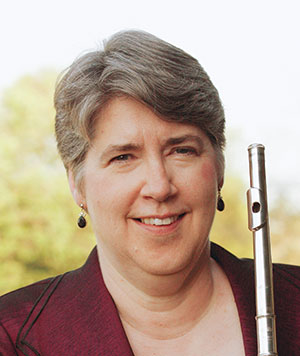
I usually have a staff of two or three other teachers. We also have specialists on ethnic flutes virtually every year. I also usually have one or two helpers – often former students or campers who are too old for the program. I have known most of my teaching staff and counselors since they were high school students although I also have consulted local university professors to hire junior staff from among their students.
The camp does not have traditional masterclasses and instead focuses on activities where everyone can participate. We introduce junior high flute students to studying the flute more seriously, encouraging them to study privately, and pursue excellence. Students do not have required books to bring. Instead we provide handouts for basic exercises like octaves, harmonics, vibrato production, scales, arpeggios and also work on double tonguing and extended techniques with more advanced students.
Each flutist receives two to three private lessons during the week at no addition cost as well as daily technique, a small ensembles class, flute choir and a special topics class that might include a demonstration of an ethnic flute, extended techniques, flute care, and basic repair tips. There is a pool and pizza party before the Tuesday evening faculty concert and a family pot luck before the final student concert. Most classes are one hour in length except for flute choir which is two hours.
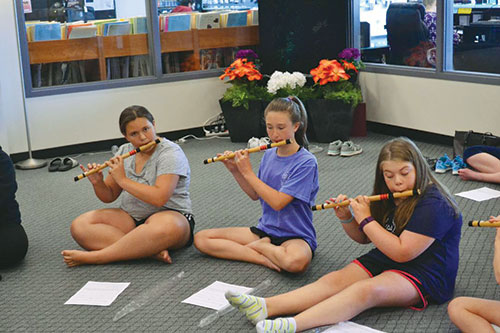
Courtesy of Dr. Cate’s Flute Camp
What was the biggest difficulty you faced in the early years of the camp?
In the first several years of the camp, I was on the faculty of a liberal arts college in my area. The camp was being administered through the community education office at this college. It became very apparent that the college’s expectation of enrollment and mine were quite different. The college ran a lot of large sports camps with 50-75 students every summer. The first couple of years I had 10-12 students from area schools. In fact, the second year, the college cancelled the camp the Thursday before it was supposed to start the following Monday. With the help of some friends, I found a church willing to host for a minimal charge. I called all of the families. The college refunded their money, and the parents paid me directly. I arranged to have lunches catered, and we started our camp on Monday.
From this experience, I learned I could do this on my own, that I had support from the community, and that I could run a camp that would make a meaningful difference for young flutists in my area. I learned how to have a budget, take care of feeding the students, get t-shirts made, select ensemble music, and give them a variety of experiences related to playing that they could take back to their school bands, private lessons and practicing.
What ideas on running a camp did you borrow or adapt from someone else?
From my experience as a teacher at another camp, I learned that it is important to keep students engaged throughout the day with learning activities and social time. At the other camp, the teachers taught private lessons from 8:30-5:00 every day, and students had way too much down time. They were supposed to be practicing but many would waste time or get into mischief. Based on that experience, I was determined to find a way to keep everyone as engaged as possible and share the workload among the staff so it was not such a marathon.
What idea worked better than you expected?
A brainstorm I had in preparing for year three or four has turned into one of the important features of the camp. It is to introduce kids to the idea that the flute is a universal instrument. Every culture has some kind of flute. Since that first time, when I invited Lyon Leifer to demonstrate the bansuri, from India to the campers, I have focused on a demonstration of some kind of world flute each year. We have had Irish flute, Baroque flute, Native American flute, di zi (China), shakuhachi (Japan), quena and zampoña (pan pipe), ney (middle eastern), daegum (Korea), fujara (Slovakia). We have even tried our hand at making our own flutes a couple of times.
What words of advice do you offer for someone contemplating starting a summer program?
Decide upon the target age that you want to serve. Create a curriculum that addresses what they should learn at this age. With younger students participatory classes serve this age the best so all are involved in the same activities. Be sure to plan for some social time between scheduled classes.
Katherine Borst Jones
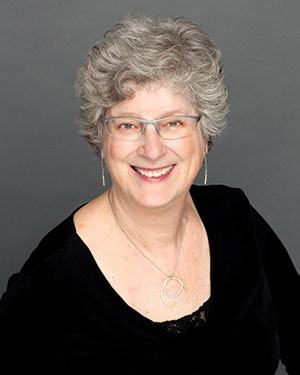
The idea for hosting a summer flute workshop came in 1976 when I was teaching at Capital University. When I was hired at The Ohio State University, the first OSU Flute Workshop was held in 1985. The goal was partly to increase recruitment for the university, but mostly to enrich the lives of flutists who may have few opportunities to learn in their hometowns. Sometimes a student participates who has had nothing but band training. He discovers what is possible on the flute, and the next year arrives at the workshop as one of the outstanding students. Then he may continue on to play at the university level. We accept the first 50-60 students who apply. The program, which runs from Sunday afternoon through Thursday evening, is for flutists grades 9-12. The workshop has one masterclass teacher plus two other teachers. These might be graduate students or professionals in the area.
The program is based on the idea that each flutist has the desire to improve and will learn from all involved in the workshop – counselors, faculty and students alike. Each student receives a large folder of materials that has been developed through the years that includes long tones, a list of reference and performance enhancement books, intonation tendencies, thoughts on musicianship, small ensemble rehearsal tips, and my clinic papers.
Students arrive Sunday afternoon and check into the dorm. They audition and are placed into a small ensemble (trio to quintet) and are assigned a private lesson teacher. The evening events include a Katherine Borst Jones recital, faculty/counselor recital, skit night, a pizza party and an all-camp recital. On Tuesday evening students perform a skit about the famous flutist their ensemble is named after. Then faculty members perform the students’ small ensemble works so students have a chance to hear their repertoire performed. About one-third of the students are featured in the solo night concert on Wednesday followed by a pizza party. On Thursday students perform in their small ensembles, and everyone plays in the flute choir.
Other activities include a technique class, a masterclass with me, small ensemble rehearsal with a coach, and a theory or eurhythmics class. There are also solo night rehearsals, private lessons, duet and trio readings with coaches, intonation charts, listening room, and piccolo and conducting instruction.
I usually have five to seven counselors who are my current Ohio State flute students, many of whom attended the workshop when they were in high school. Their past experiences are most helpful in dealing with any problems that may arise. Employing my current students also offers the opportunity to help them improve their teaching skills. In addition, I also hire a head counselor who is older and more experienced. Usually this is a former student and a current public school teacher.
The hiring is based on personality, people skills, and flute playing ability. Ohio State requires that all faculty and counselors undergo minors training and have a background check. Students are not allowed to go places on their own. The university rules have become very strict. No counselor is allowed to be in a room alone with a single student. We have special rules for those teaching private lessons, including a window in the door of the studio.
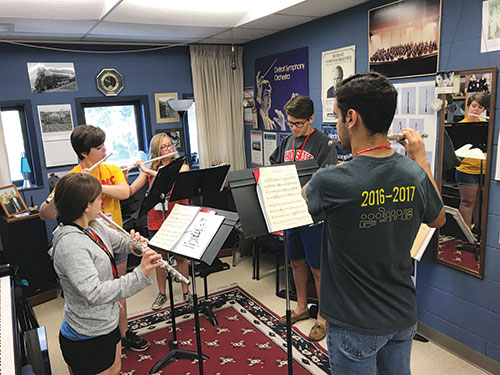
What was the biggest difficulty you faced in the early years of the camp?
Creating a schedule that worked for everyone and the available facilities was probably the greatest challenge. Since we break down into trios and quartets twice a day, finding enough appropriate spaces was challenging. We use faculty studios as well as chamber music rehearsal halls, so we must be very careful with the rooms. We always leave thank you notes for the faculty whose studios we have used. It is also important to plan long enough breaks for meals, which then can be used for social interactions or extra practice time.
Planning evening events that are both fun and educational is also important. We first came up with the idea of a faculty recital, then a counselor recital, then a faculty reading session of small ensembles that is a combination of fun skits and serious playing, followed by a student solo night with a fun quiz and pizza party. The workshop concludes with the Thursday final concert that includes everyone. The opening faculty recital sets the tone for the workshop. A reception is held afterwards so students learn about how to interact after a performance. Social experiences are important, especially at the beginning, so friendships can begin easily. The first year I scheduled the faculty recital on the last day of the workshop. It was a mistake because I was so busy that I didn’t have much practice time throughout the week.
What ideas on running a camp did you borrow or adapt from someone else?
I served on the faculty of a five-day woodwind quintet camp that had five student woodwind quintets and a faculty member coaching each group. This participatory camp was very successful with a high student to faculty ratio, but of course only had five students for each instrument. For the Flute Workshop, we have a similar ratio of faculty/counselors to students but larger overall numbers. I have found that a four-day event is the perfect amount of time. The short time frame leaves students wanting more, so they often return for another year or two.
What activities work better than you expected?
Physical activities, such as eurhythmics, or even conducting sessions are popular. Participatory activities are essential. Morning warmup with everyone includes body work and technique class and keeps the students engaged. Students appreciate all of the performance enhancement techniques included, which are useful for both music and their general life in school.
What is a factor that students and parents do not consider when choosing a camp?
Homesickness is often a problem, especially if students have not left home before. We do everything possible to help them get to know each other quickly. The ensemble focus with two rehearsals per day encourages great friendships as well as wonderful learning experiences.
What words of advice do you offer for someone contemplating starting a summer program?
Be flexible. Be ready to deal with all levels. Stay positive and encouraging and enjoy the generation of enthusiasm. Often this workshop changes the direction of a student’s life. They come to the camp as someone who is alone with their love of the flute at school, only to find others with the same interest. The students inspire each other. The college-age counselors are just a little older and provide wonderful role models. I am always amazed at the impact that a short several-day experience can have on students. Often lifetime friendships are made. Œ.
